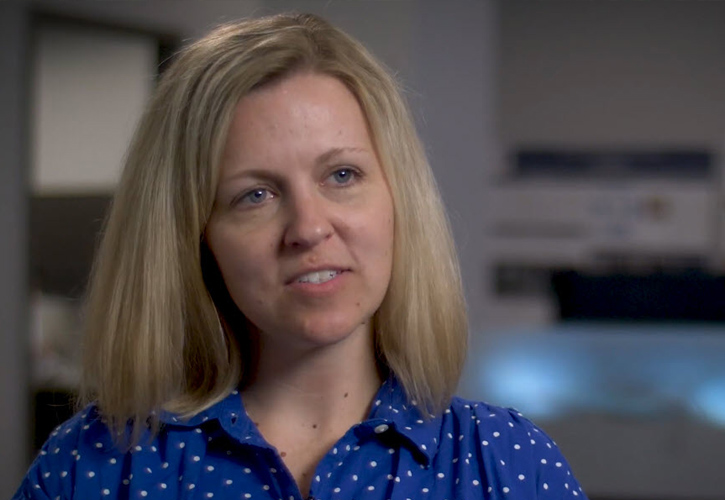College of Arts and Sciences Newsroom

University of Dayton psychologist awarded $439K from National Institutes of Health to study early math skills development
By Dave Larsen
The National Institutes of Health awarded $438,829 to University of Dayton psychologist Mary Fuhs to study early development of mathematics skills in preschool-age children, particularly those from disadvantaged backgrounds.
Fuhs, associate professor in the Department of Psychology, will conduct three studies over three years to assess children’s ability to distinguish differences in size and number, as well as the relationship of that ability to their overall math achievement. For example, if young children are asked to compare three elephants and six mice and say which group is greater in number, they often will pick the elephants because they are bigger in size.
“It is a common source of confusion among preschool-age children and it’s something that isn’t really highlighted in number books or early math curricula, helping children understand the difference between size and number in space in their early math activities,” Fuhs said.
“The goal of my project is to develop a measure that assesses this ability in young children and then develop an intervention through number books that helps children understand the differences between the magnitudes. I think that will have an important effect on their early math skills.”
Her pilot research provided evidence this early ability to pay attention to numbers and not be distracted by size, color or shape predicts math achievement in preschoolers.
That research, which led to the National Institutes of Health (NIH) award, was supported by a 2018 grant from the University’s STEM Catalyst Initiative. The initiative provides funds to support faculty research programs that have the potential to rise to national prominence and transition to external funding.
“I am excited that Dr. Fuhs' outstanding research is being recognized and supported by the NIH,” said Doug Daniels, executive director of the University’s Integrative Science and Engineering Center, who coordinates the initiative’s review committee. “Her success continues delivering on the premise of the STEM Catalyst program, where faculty request a finite amount of support that is critical to a specific plan for securing sustainable, external research funding.”
The NIH grant supports Fuhs’ work with undergraduate students to develop and implement her three studies, which start this fall and continue through summer 2023. The funding allows her to hire four students each summer to work fulltime on the project. During the academic year, they can continue to work for credit.
Typically, Fuhs works with 15 to 20 undergraduates each year. Her research also includes a separate math cognition study under a $225,000 subaward from a $1.37 million National Science Foundation (NSF) grant awarded in 2018 to Vanderbilt University. In addition, she works with Dayton-Montgomery County Preschool Promise, a nonprofit that helps area preschools improve their programming.
“All of this work is related to the goal of helping young children be more prepared for school readiness when they get to kindergarten, especially in the area of math,” Fuhs said. “My research has mostly focused on children who come from under-resourced environments and often don’t have access to high-quality resources for early learning, because we know that children from low-income homes typically start kindergarten behind their peers when it comes to academic learning.”
This summer, Fuhs is working virtually with two undergraduate students through the College of Arts and Sciences Dean’s Summer Fellowship program to develop protocols for her research projects, which all have been impacted by COVID-19.
In July, she was scheduled to start a randomized control trial in local preschools to study the effectiveness of a mobile application developed under the NSF grant to provide teachers with real-time feedback to improve their classroom practice. However, that study was delayed until July 2021 because public health measures related to the coronavirus prevent researchers from visiting classrooms.
“All of our research has, in the past, required us to go into schools and work with children one-on-one,” said Patrick Ehrman, a psychology major from Catonsville, Maryland, who is working with Fuhs on protocols to study an adaptive eBook her lab is creating to help parents engage their children about math. His work will serve as the basis for his senior thesis project during the 2020-21 academic year.
“The opportunity to design and conduct a study of my own while an undergrad has not only allowed me to confirm that this is where my passions lie, but also given me a leg up in knowing what to expect in graduate school and my career beyond. I am also able to say I have already conducted research of my own design, which is an advantage when applying to graduate schools.”
For more information, visit the Department of Psychology website.
